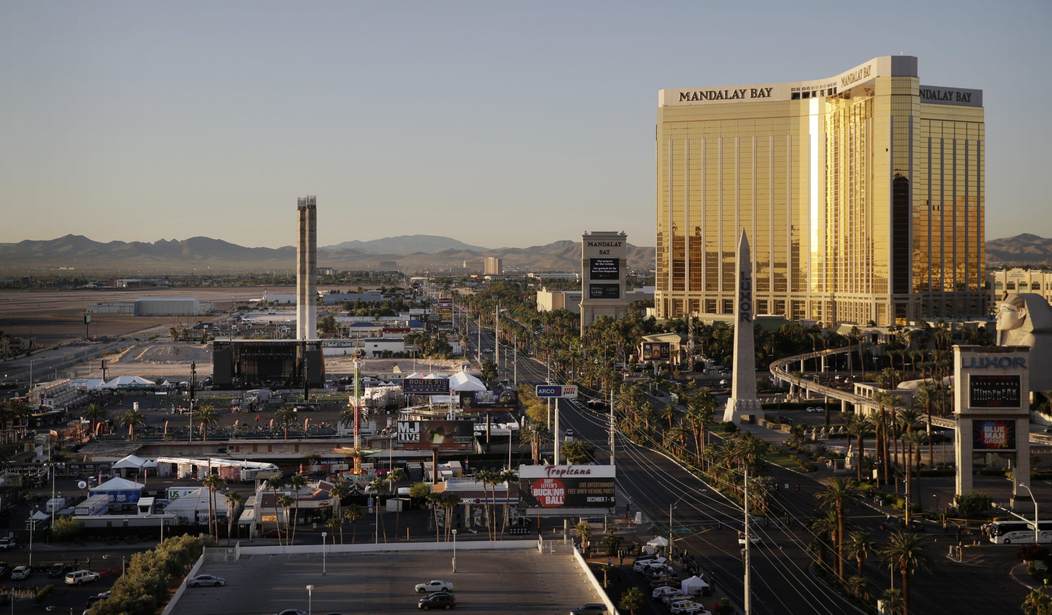All week long, I read the tributes to the dead. There was the construction worker Jack Beaton, 54, who was gunned down on his 23rd wedding anniversary as he shielded his wife’s body with his own. There was off-duty cop Charleston Hartfield, who was escorting people to safety when a bullet got him. There was Hannah Ahlers, a devoted full-time wife and mother, whose father-in-law said she “could have lit the world up with her smile.”
No one would speak ill of these martyrs, but I couldn’t help thinking as I read the tearful tributes that each and every one of them had done bad things in their lives: committed acts of hypocrisy and dishonesty, slipped into moments of unkindness. I knew this was true, of course, because it’s true of every one of us. As Saint Paul wrote of himself: “I do not understand my own actions. For I do not do what I want, but I do the very thing I hate.”
Saint Paul said this too: “Our struggle is not against flesh and blood, but against the rulers, against the authorities, against the powers of this world’s darkness, and against the spiritual forces of evil in the heavenly realms.” That is, each of us is in a constant daily battle against a dark and insinuating force of wickedness that is not only above us but all around us and within us as well.
I hate when people use the word evil when discussing normal American politics. I never used it to describe Barack Obama, whose policies I detested. I won’t use it to describe Donald Trump, whose behavior I sometimes deplore. Misused to describe flawed but striving men like these, the word evil is merely a means of demonizing those you disagree with, of shutting down civil debate. It frees you from the responsibility of democratic discourse.
Understood rightly though, the concept of evil should increase our compassion even for our opponents. It allows us to understand that they are in the same struggle we’re in, prone to the same failures, subject to the same defeats. Deep down, our political opponents are painfully aware of the fragility of their own decency, terrified that others will see the blackness of their hearts, and constantly signaling their virtue as a way to mitigate their own self-disgust and fear. Just like you. Just like me.
Like most conservatives, I was sickened by the way the left rushed to manipulate the nation’s grief and anger in an attempt to strip us of our right to defend life and liberty, a right also known as the right to bear arms. Then Mollie Hemingway said something on the Special Report panel that was so compassionate and illuminating, it cooled my outrage. “We’re pretending we’re having a debate about gun control,” Mollie said, “but we’re really having a debate about the nature of evil and whether a big enough government can contain it.” It was an observation so womanly wise that a mere news discussion couldn’t address it. The rest of the panel ignored her and the talk immediately turned to the utterly meaningless effort to ban bump stocks.
But of course, she was right: that’s exactly what we’re really talking about. The left sneers at conservatives for “doing nothing,” but conservatism understands the tragedy of the fallen world: we can only choose between freedom with evil and slavery with evil, because no government is large enough to make evil go away.
But in freedom, we see the only real response to darkness humans have ever had: individual courage, sacrifice and nobility. In fact, individuals win victories against evil every day — when they tell the hard truth rather than the easy lie or speak words of kindness when they’d rather lash out. And in those moments when evil rises rampant, their victories sometimes become spectacular as they rush into the teeth of death to help both strangers and friends.
My novelist heart was touched to hear that one of the great heroes of the Las Vegas massacre was a man named Jonathan Smith. I mean, really. John Smith — the ultimate everyman moniker — I wouldn’t have dared to make that up. The 30-year-old copy machine repairman is said to have helped thirty people escape the kill zone before taking a bullet in the neck — and then another hero, an off-duty cop named Tom McGrath, saved him.
Once again, as during the recent hurricanes, while loud mouths and big shots made noise, sewed division and pretended to have answers they don’t really have, an all-American army of John Smiths fought back against entropy and evil with the only weapons that work: free, individual hearts and minds, choosing the good. God bless them. I know He will.









Join the conversation as a VIP Member